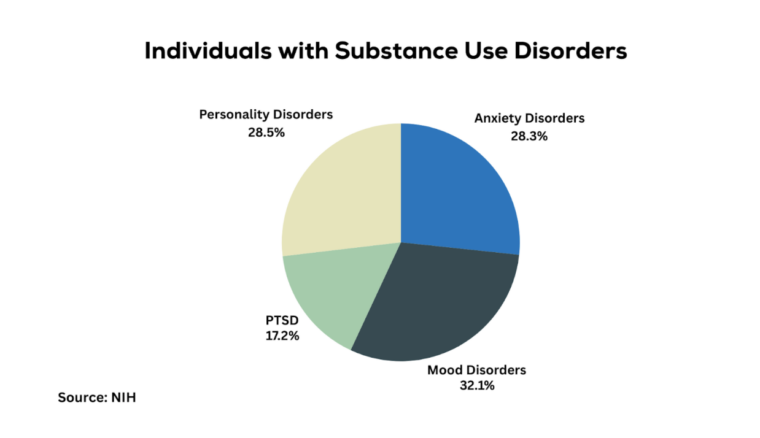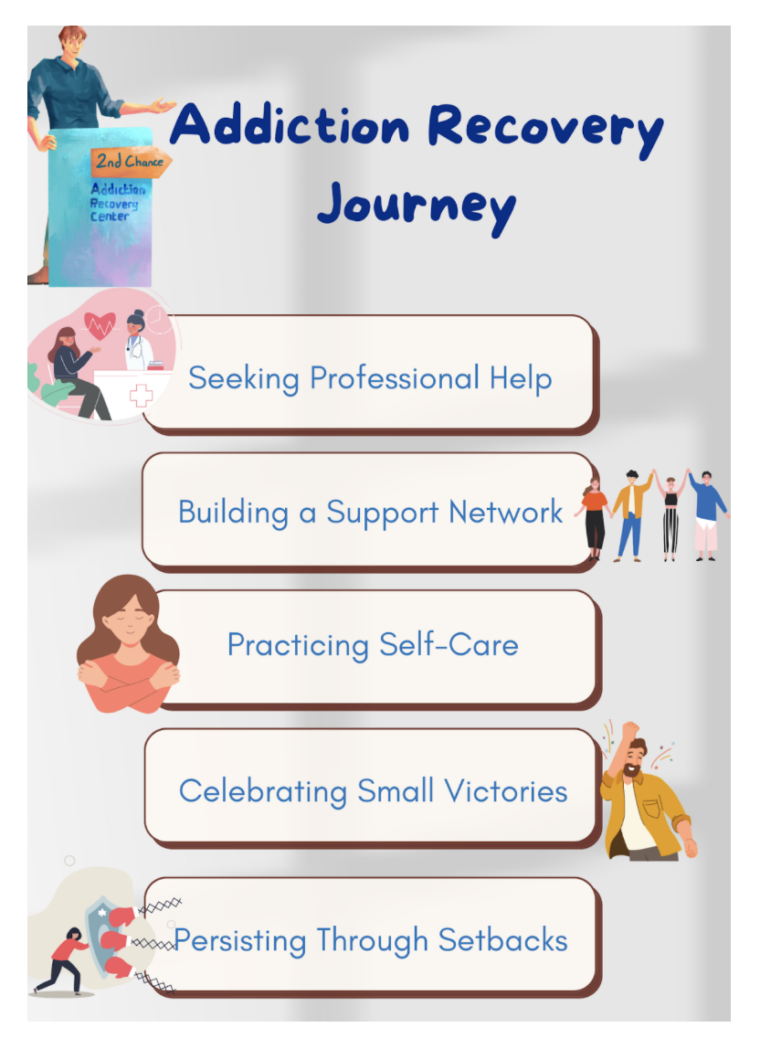Why Do Individuals Fall into the Trap of Drug Addiction?

Drug addiction affects people of all ages, genders, and backgrounds, leaving devastation in its wake. But what drives individuals into this trap? A mix of biological, psychological, and environmental factors contributes to this issue. Addiction isn’t simply a choice or moral failing, it’s a complex issue shaped by many influences, from our biology to our life experiences. Understanding these complexities helps us develop better ways to prevent and treat addiction.
Untangling the various factors leading to addiction can help us better understand its strong influence. With that deeper insight, we can develop smarter ways to prevent people from falling into addiction’s trap and intervene more effectively for those who are already struggling.
Join us as we delve into the heart of the matter, unraveling the threads that weave together to create the phenomenon we call addiction. So, grab a seat, and let’s embark on a journey to understand why individuals find themselves in the trap of drug addiction.
The Underlying Vulnerability
At the heart of addiction lies the brain’s intricate reward system, a delicately balanced circuitry that governs our pursuit of pleasure and satisfaction. This system is driven by the neurotransmitter dopamine, which plays a crucial role in reinforcing behaviors that elicit feelings of euphoria or well-being.
When an individual consumes addictive substances, these drugs hijack the brain’s reward pathways, flooding the system with an overwhelming surge of dopamine. This artificial stimulation can be several times more potent than the dopamine release triggered by natural rewards, such as food or social interactions.
Drugs like opioids can cause dopamine levels to surge 10 times higher than natural rewards.
Over time, this repeated exposure to intense dopamine spikes rewires the brain’s reward circuitry, creating powerful associations between the drug and feelings of pleasure. As a result, individuals become compelled to seek out the substance, even in the face of negative consequences, as the brain interprets the drug as essential for survival and well-being.
Communities like Lubbock, facing unique challenges, have prioritized prevention, treatment, and support services to effectively address drug addiction. Prop A Lubbock aims to address underlying issues surrounding drug addiction. Genetic factors significantly shape an individual’s vulnerability to addiction.
Research has identified several gene variations that can influence how the brain responds to addictive substances, as well as the likelihood of developing addictive behaviors. Individuals with a family history of addiction are at a higher risk due to genetic factors. Research suggests that genetic variations influence how the brain responds to addictive substances.
Early Life Experiences
The formative years of childhood represent a critical period in shaping an individual’s susceptibility to addiction. During this developmental stage, the brain is highly plastic and malleable, absorbing and internalizing environmental influences that can have lasting effects on neural pathways and behavioral patterns.
Adverse childhood experiences, such as physical or emotional abuse, neglect, or witnessing substance misuse within the household, can leave indelible scars on the developing brain. These traumatic events can disrupt the normal formation of neural connections, leading to alterations in the brain’s stress response systems and reward circuitry.
Adverse childhood experiences, such as abuse or neglect, can significantly increase the likelihood of developing addiction later in life. Witnessing substance misuse during childhood can contribute to the risk of addiction.
Individuals who endure such adversities may develop maladaptive coping mechanisms, turning to substances as a means of self-medicating or escaping from emotional pain. This early exposure to drug use can also normalize addictive behaviors, increasing the likelihood of continued substance abuse later in life.
Parental influence plays a pivotal role in shaping a child’s attitudes and behaviors toward substances. Children who grow up in households where substance use is prevalent or normalized may develop a skewed perception of the risks associated with drugs or alcohol.
Additionally, the lack of positive role models or effective parenting strategies can leave children vulnerable to peer pressure and other environmental influences that promote substance abuse.
The impact of these early life experiences extends beyond the psychological realm, as research has shown that childhood trauma and stress can induce epigenetic changes and alterations in gene expression that can be passed down from one generation to the next. These epigenetic modifications can affect the brain’s reward and stress pathways, potentially increasing an individual’s susceptibility to drug addiction across multiple generations.
By understanding the profound influence of early life experiences on the developing brain and the potential for intergenerational transmission of addiction risk, we can better tailor prevention and intervention strategies to address these critical factors.
Social and Environmental Factors
Beyond the realms of biology and upbringing lie the social and environmental forces that beckon individuals toward the precipice of addiction. Peer pressure, particularly during the tumultuous years of adolescence, can exert a potent influence, compelling young people to experiment with substances in a misguided quest for acceptance or rebellion.
Studies show that adolescents are particularly vulnerable to peer influence, with social circles heavily impacting the likelihood of substance abuse and addiction.
Moreover, the availability and accessibility of drugs within communities can facilitate experimentation and foster addiction. In environments where substances are readily available, the temptation to indulge can prove overwhelming, eroding resilience and fueling a vicious cycle of dependence.
Coping Mechanisms and Emotional Pain
For many, addiction represents a desperate attempt to numb emotional pain or alleviate the burden of mental health challenges. Individuals grappling with conditions like anxiety, depression, or trauma may turn to drugs as a means of self-medication, seeking solace in the temporary respite they offer.

Individuals struggling with mental health issues like anxiety or depression may turn to drugs as a coping mechanism. Research highlights the link between mental health disorders and substance abuse as a form of self-medication.
Chronic stress, too, can drive individuals towards the illusory escape of substance use, as high-stress environments can trigger epigenetic changes in the brain, increasing the risk of addiction and relapse.
How Does One Deal with Addictions?
Overcoming addiction is a journey, and it begins with small, consistent steps. While the path may seem daunting, every positive choice, every moment of determination, and every effort to seek support can pave the way toward recovery. Embrace these small steps:

- Seek Professional Help: Reach out to addiction counselors, therapists, or support groups. Professional guidance can provide invaluable tools and strategies tailored to your unique needs.
- Build a Support Network: Surround yourself with understanding and compassionate individuals who can offer encouragement and accountability throughout your journey.
- Practice Self-Care: Engage in activities that nourish your mind, body, and soul. Exercise, mindfulness practices, and healthy hobbies can help you develop coping mechanisms and find joy in sobriety.
- Celebrate Small Victories: Recovery is a process, and every milestone deserves recognition, no matter how small. Acknowledge your progress and use it as motivation to continue moving forward.
- Persist Through Setbacks: Relapse is a common challenge, but it does not define your journey. Approach setbacks with self-compassion and a renewed commitment to your recovery goals.
Remember, the path to overcoming addiction is rarely linear, but each small step taken with determination and resilience can lead to lasting transformation.
Comparison of Risk Factors for Drug Addiction
To better understand the impact of various risk factors, let’s examine a comparative analysis:
| Risk Factor | Influence Level |
| Genetic Predisposition | High |
| Adverse Childhood Experiences | High |
| Peer Pressure | Moderate to High |
| Mental Health Issues | Moderate to High |
| Personality Traits | Moderate |
| Life Circumstances | Moderate |
This table underscores the significance of genetic and early life factors in shaping addiction vulnerability, while also highlighting the substantial influence of social, psychological, and environmental elements.
Don’t Fall into the Addiction Trap
When it comes to addiction, we have to move past making harsh judgments and simplistic explanations. It’s a much more complex issue than just chalking it up to poor willpower or bad morals. The reality is that addiction arises from this complex web of biological factors, environmental influences, and individual vulnerabilities all twisted together.
If you or someone you care about is battling addiction, don’t go it alone. There are many resources available to guide you one step at a time along the path of recovery; don’t hesitate to reach out for professional help and support.
Always remember, you’ve got company on this difficult journey. With the right assistance and commitment, healing and getting your life back are possible.
Frequently Asked Questions
Is addiction purely a matter of personal choice?
No, addiction is a complex interplay of biology, environment, and individual vulnerability. It is not merely a matter of willpower or personal choice. Various factors, including genetics, upbringing, social influences, and mental health, contribute to the development of addiction.
Can anyone become addicted, or are some people immune?
While susceptibility varies, no one is entirely immune to addiction. Genetic, psychological, and social factors converge to shape an individual’s vulnerability. However, certain risk factors, such as family history or traumatic experiences, can increase the likelihood of developing an addiction.
Is addiction reversible?
With proper treatment, addiction can be managed and recovery achieved. However, it requires commitment, support, and professional guidance. Recovery is a journey, and relapse is a common challenge, but it is possible to overcome addiction with the right interventions and support systems in place.
